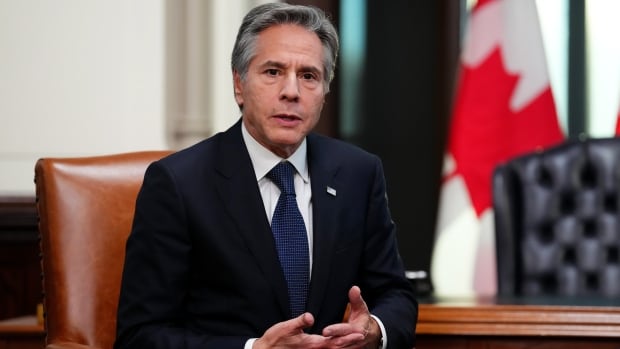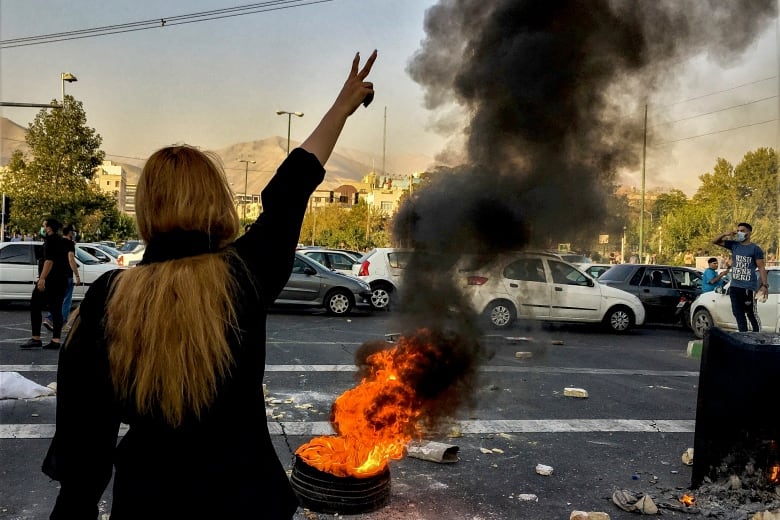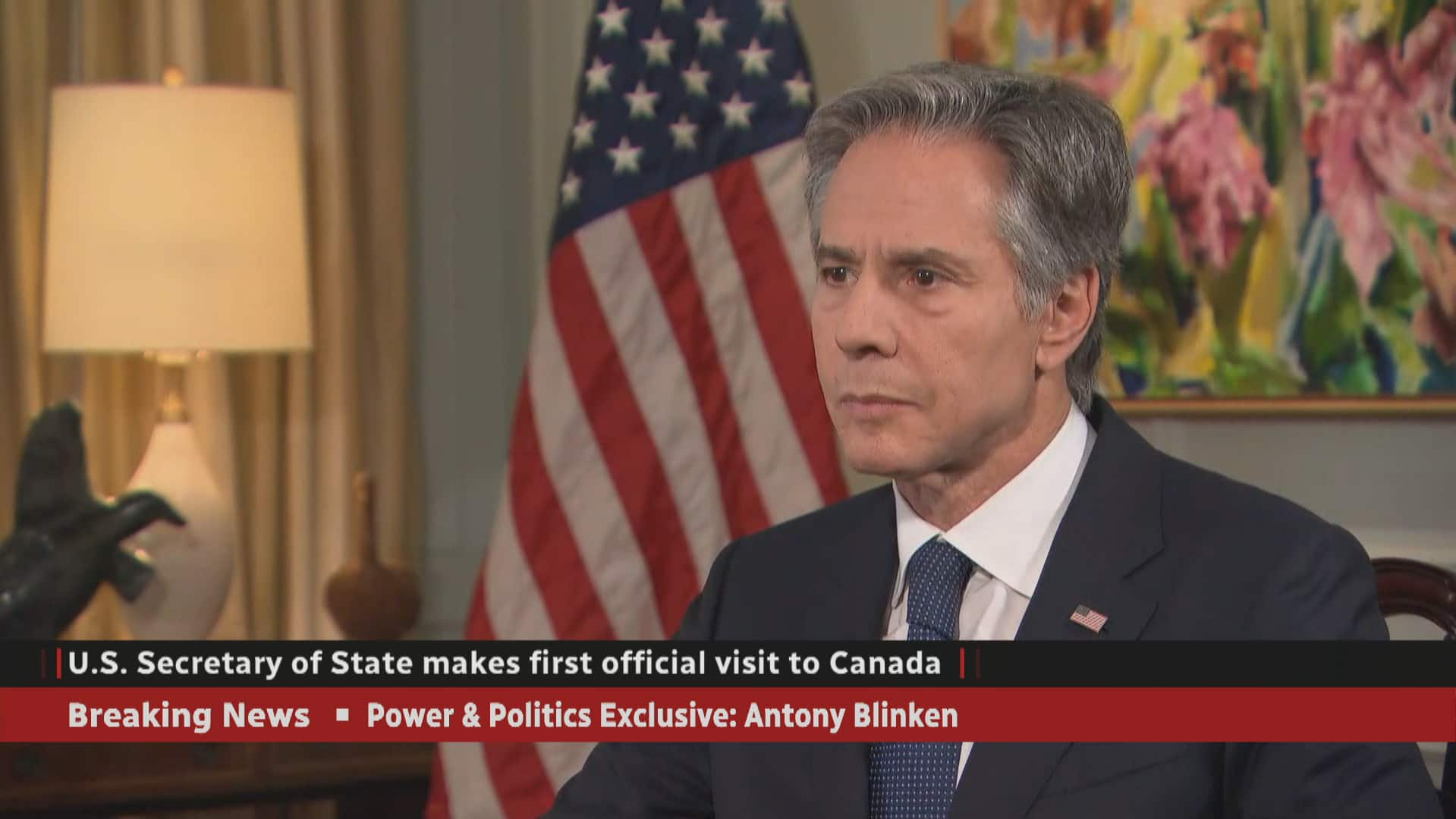
U.S. Secretary of State Antony Blinken declined this week to state that nuclear talks with Iran are dead — despite a popular uprising challenging the authoritarian regime and evidence that Tehran is supplying Russia with so-called ‘kamikaze’ drones to strike civilian and infrastructure targets in Ukraine.
“There’s no forward movement,” Blinken said in an exclusive interview this week with CBC News Network’s Power & Politics. “The Iranians continue to try to inject extraneous, unrelated issues into the conversation.”
“With respect, is it dead forever?” host Vassy Kapelos asked Blinken. “The regime that you would be essentially personally legitimizing by negotiating with is killing people who are protesting against it. Is that a tenable position for your government?”
Blinken said that when the parties negotiated the original Joint Comprehensive Plan of Action (JCPOA) — the deal meant to prevent Iran from obtaining a nuclear weapon — Tehran was “engaged in a variety of profoundly objectionable actions.”
“Support for terrorism, destabilizing activities in the Middle East, of course its own abuse of human rights,” said Blinken.
“What we said at the time in negotiating the agreement was Iran is taking all of these actions — an Iran with a nuclear weapon is likely to be even worse because it will believe it can act with even greater impunity when it comes to all of the activities it’s engaged in in the region and beyond that we object to.”
Watch: Full interview with U.S. Secretary of State Antony Blinken
“What I’m hearing – my consultations with Congress, Republicans and Democrats alike – is the support is strong,” said U.S. Secretary of State Antony Blinken, expressing doubt that a Republican-controlled Congress would jeopardize U.S. support of Ukraine moving forward.
Signed in 2015 by Iran, the U.S. and several other world players, the JCPOA was intended to curb Iran’s nuclear programs in exchange for sanctions relief.
In one of his signature foreign policy moves, President Donald Trump pulled the U.S. from the agreement in 2018 and restored some of the sanctions that had been lifted when the deal was struck.
During the 2020 presidential campaign, Joe Biden described Trump’s foreign policy on Iran as a “dangerous failure” and vowed to rejoin the nuclear agreement if Iran returned to strict compliance with the terms of the deal.
Negotiations appeared to hit a wall in August when the U.S. State Department said Iran was making “unacceptable demands.”
Time for Washington to say ‘these talks are dead’: activist
Lawyer and human rights activist Kaveh Shahrooz said the Biden administration’s current position is untenable, given the widespread protests in Iran and the fact that Tehran is supplying weapons to Russia.
“The Iranian people have made very clear that this regime does not represent them. It does not represent their interests. And I think it’s very clear to any observer that Iran’s regime is not a party that can be trusted,” said Shahrooz. “It’s time for the Biden administration and Secretary Blinken to say these talks are dead.”
Shahrooz said the current context demands that Iran be “more isolated diplomatically” and that engaging in further talks would send a signal that the regime in Tehran is a “legitimate and credible partner to the West.”
Blinken insisted this week that engaging in nuclear negotiations with Iran is not about legitimizing the regime, but rather about preventing a bad actor from obtaining a nuclear weapon.

Shahrooz said that argument may have convinced some people a month ago, but now “we’re in a revolutionary moment.”
Instead, Shahrooz said, the Biden administration and the international community should make it costly for anyone to cooperate with Tehran in order to “empower Iran’s revolutionaries themselves to overthrow this regime.”
A nuclear-armed Iran would be a disaster: ex-diplomat
Retired career diplomat Dennis Horak served as Canada’s head of mission to Iran from 2009 until a few weeks before the Harper government suspended diplomatic relations in 2012. He said it’s important to let the current political situation play out in Iran — but eventually, the nuclear talks should resume.
“As imperfect as the agreement was, it did put some controls on Iran’s nuclear program and I think it’s important that those controls be reinstated at some point,” said Horak. “Iran is a difficult player in the region and a nuclear-armed Iran would be a disaster.”
But Horak cautioned against relaunching negotiations as a popular uprising is still sweeping across Iran.
“I think the Iranian regime might view that as an opportunity to change the channel,” said Horak. “I don’t think the West should allow itself to be used in that sort of a public relations exercise.”
